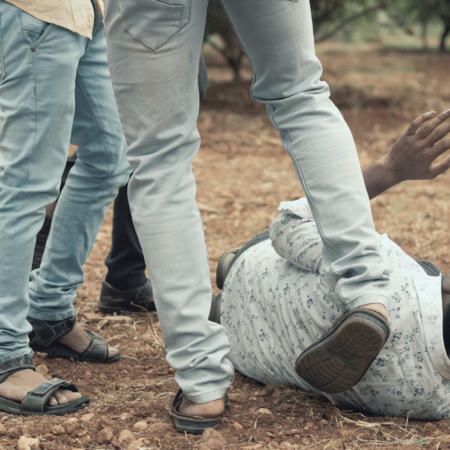‘I am the bananas’: micro-financier pens book
By Susan Schwartz
TMO contributing writer
Jessica Jackley, a co-founder of KIVA, has written an excellent book on entrepreneurship, weaving together her autobiography with stories of inspiring entrepreneurs she has met. KIVA is an organization which provides interest free loans, usually in small amounts—$25 is typical – to entrepreneurs from underdeveloped nations. Her book, titled Clay Water Brick, should be a part of everyone’s library. Each success story contained in the book tells of Jackley’s work in the field of entrepreneurial underwriting for small local enterprises in poverty ridden nations. It is apparent that the relationship between the donor and the recipient is a two way learning experience. Examples of individual enterprise compose much of the book, and we come to admire the individuals she cites. We also come to see the lessons the borrower can teach. The stories dispel preconceived notions of the mindset of the poor in these nations.
Many people think Silicon Valley or six or seven figure investment rounds when they think of startups. Actually most startups require loans so small that no bank or financial institution would think it worth the paper work. They are interest free and are usually for monies in the low thousands at most. Many are for much less. These inspired and empowered people raise their own standard of living and that of those around them. They become independent and successful. They are true entrepreneurs.
Jackley remembers being inspired by her Christian faith to help the poor at an early age. She became dissatisfied with simply writing a check or working in a soup kitchen. While at Stanford University in 2003 she heard a speech given by Mohammed Yunus on the subject of microfinance, which is when she knew she had found her calling. In 1976 Mr Yunus was an economics professor at Chittagong University in Bangladesh. He and his students conducted surveys in desperately poor areas and discovered that a small amount of money – loaned at either 0% or very low, much lower than traditional borrowing from banks and financial institutions – could lift a woman and her family and even her village out of poverty. The monies were always repaid. Mohammed Yunus won a Nobel Peace prize in 2006 for his work.
In time Jackley, largely for personal reasons, left KIVA to form ProFounder. As with any venture, progress was never in a straight line. An alliance with a larger more successful group was found to have too large a down side to continue. People whom she trusted subsequently were found to be untrustworthy. Jackley never took her eyes off her goal and recently was instrumental in formulating the language of Title IV of the JOBS Act. For this she received an invitation to the Rose Garden when President Barack Obama signed the Bill into law.
Some examples of those led to success by microfinancing. Raj the rickshaw driver from Jaipur, India taught that following one’s own path may bring you to your destination first, even if the path is bumpy and not frequently used. Zica and Leila of Rio de Janeiro became successful producers of hair products even though they seemed to have none of the qualifications one would expect. Constance, the banana farmer, lived in an area west of Nairobi, Kenya. Selling bananas was a competitive business, but Constance was able to convince other growers that they must seek cooperation. She became a leader in the production and sale of an important and frequently consumed crop. Her confidence – possibly her greatest resource – can be expressed in her statement to Jackley: “I am the bananas.”
The Muslim Observer: Thank you for speaking with us Jackley. My first question is in regard to your father. Could you tell us more about him and about the way you feel that he influenced your life?
Jackley: Absolutely. Both of my parents have been huge influences on me. My dad is very entrepreneurially minded and has always encouraged my brother and me to dream big dreams; he’s started some of his own consulting-based ventures over the years. And my mom is this incredible, incredible educator – she teaches elementary school and has an almost magical way with children. I think saying that she instilled “a love of learning” in us sounds a bit trite. It’s much more than that. She convinced me that I could go out there and figure out how the world worked. How people worked. How anything worked. And my dad convinced me that I could go make my own ideas work and become real ventures. I’m very blessed.
TMO: When sociologists describe the nature of a tribe, they generally assert that tribes are inherently conservative. I use the term to mean resistant to change. Yet the entrepreneurs you describe turn that description on its head. There have to be reasons other than possessing entrepreneurial qualities we have come to associate with the West. Could you tell me what influences made these women buck tradition?
Jackley: I think entrepreneurs are made, not born … and yet, I’m also the mother of identical twin boys and am reminded every day that personality is a very powerful force in our lives. I have to imagine that some of the entrepreneurs I’ve met who have been able to really break away from more conservative ways of thinking did so because of some innate tendency. Maybe, for instance, they were naturally more risk-tolerant, or more decisive, or who knows, were naturally extroverted and got great feedback from people as they attempted to put new ideas out into the world. That said, almost any personal quality or personality quirk could be a strength in one situation and a weakness in another, so it’s really difficult to make a blanket statement about this. One thing I do know for sure: having great role models matters. I know many of my favorite entrepreneurs have been able to see that more was possible for their lives because they saw someone else do great things.
TMO: I am assuming three religions in third world countries: Muslim, Christian, and Animist. Have you observed any differences in the way these three impact an entrepreneurial mindset?
Jackley: I haven’t really noticed marked differences in how different religions have impacted different people’s entrepreneurial mindset. I do think that the presence of religion matters; I’ve noticed a correlation (up to a point) between having religious beliefs and having an ability to imagine and believe in a vision for the future. When a person has a great faith in God they seem to be able to have an easier time believing in other things, even an invisible, maybe very improbable, picture of what they want to create.
TMO: When you address audiences, is there a group that you find the most receptive?
Jackley: I have a soft spot for students. They have such optimism – as they should! – about all the great change that is possible in the world. But, that said I also love to talk to folks with more experience under their belts too because I think they have more context and stories of their own to bring to the table when it comes to work.
TMO: Bring us up to the present please and tell us of your current involvement with microfinance.
Jackley: I advise Kiva on a casual basis now. I moved on several years ago and left the organization to build other ventures, and ended up working with larger and larger start-ups – not just microenterprises but then small businesses through ProFounder (my second venture), and then tech start-ups through the Collaborative Fund. I do still serve on a number of boards or just advise other businesses too. For example, I joined the board of Habitat for Humanity, and they have an amazing initiative that involves providing microloans for housing.
TMO: Are there any thoughts you want to leave with our readers?
Jackley: I hope everyone reading this gets a chance to read the book and be inspired by some of the incredible entrepreneurs that I highlight. I want people to be reminded that there is a different narrative out there about poverty and potential. The title of the book was inspired by a brickmaker I met in Uganda who literally build a business out of the ground beneath his feet – he started digging, found clay deposits, mixed that clay with water, and shaped it into bricks. Opportunity is everywhere. Potential exists in every one of us.
17-33















2015
5,895 views
views
0
comments